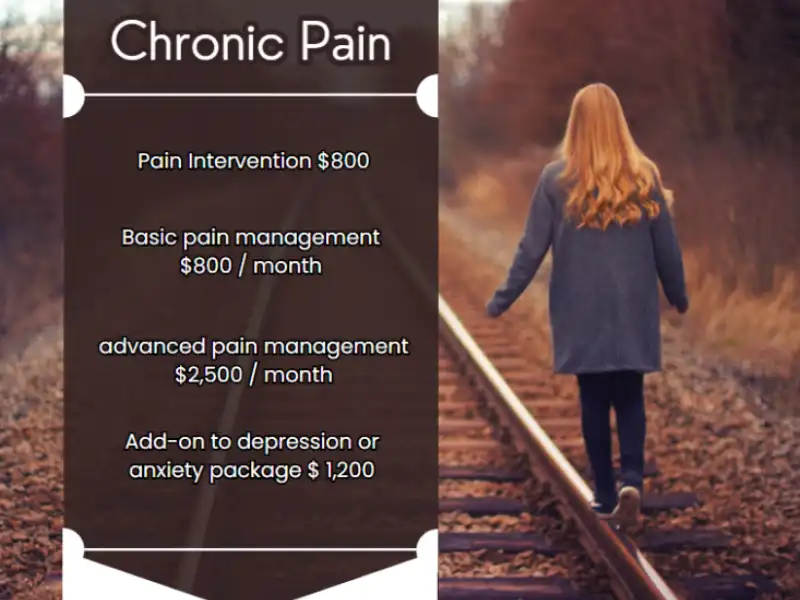Leading the Future for Neuropathic Pain
Understanding Neuropathic Pain and Central Sensitization
Neuropathic pain can feel like "chasing a ghost," as patients often undergo multiple surgeries and treatments before realizing the problem is not in the body part they thought, but rather in the central nervous system. KBlend is at the forefront of solving this challenge, providing cutting-edge ketamine treatments that have achieved astonishing results for patients with treatment-resistant neuropathy and chronic pain syndromes.
Ketamine’s Role in Modulating Central Sensitization
Ketamine works by blocking NMDA receptors, which are responsible for pain signal amplification. By interrupting these pathways, ketamine can retrain the nervous system and significantly reduce pain levels, offering relief where opioids and traditional treatments have failed.
Clinical Evidence Supporting Ketamine for Neuropathic Pain
A systematic review found that ketamine, when added to standard treatment, resulted in a statistically significant reduction in chronic neuropathic pain. Patients who had spent years chasing symptoms with invasive surgeries and ineffective treatments found hope through ketamine therapy.
KBlend’s Approach: Pushing the Boundaries of Pain Treatment
These pain treatments are among the most challenging and advanced therapies that KBlend offers to the public. However, the results have been so groundbreaking that institutions like the University of Michigan have opened their own ketamine treatment centers after seeing the life-changing outcomes achieved at KBlend.
Who Can Benefit from KBlend’s Advanced Neuropathic Pain Treatments?
- Patients suffering from treatment-resistant neuropathy that has not responded to medications or surgeries.
- Individuals with Complex Regional Pain Syndrome (CRPS), a debilitating condition that often worsens over time.
- Chronic pain patients who have undergone multiple surgeries with no relief and need a solution targeting the nervous system directly.
- Patients experiencing post-surgical nerve pain or phantom limb pain that conventional treatments have failed to alleviate.
A New Standard for Neuropathic Pain Management
KBlend is redefining pain treatment by combining high-dose, prolonged ketamine infusions with a scientific, anesthesia-driven approach. This innovative model does not just mask pain—it resets the nervous system, allowing for true healing and recovery.
Buying Options:
- Category: Neuropathy
- All pricing packages are subject to medical approval
- Refunds offered if a patient does not qualify for a discounted internet purchase
- Internet pricing only available online when paid in advance of consultation
- Internet pricing not available in-store or over the phone
For more details on ketamine treatment, pricing, and eligibility, visit our FAQ page.
What to Know Before Starting Ketamine Therapy
1. Schedule and Commitment
- ALL Treatments are performed in Monroe or Lansing Location.
- Most patients undergo two to three treatments per week over a two to three-week period.
- A typical initial treatment series consists of six infusions.
- Larger Packages may include more than 6 infusions.
- Intervention is one-time, one infusion, unless altered by provider
2. Transportation / Post-Treatment
- Patients must arrange for a driver to and from the clinic due to post-treatment effects.
- After each infusion, patients are monitored to ensure stability before discharge.
- Patients and Drivers will be given discharge instructions.
3. Pre-Treatment Preparations
- On the day of your session, avoid heavy meals to reduce nausea.
- Stay well-hydrated leading up to your appointment.
- Stop eating and drinking 4 hours prior to treatment.
- Do not come in dehydrated!
4. Medical Considerations
- Patients with high blood pressure should have their condition controlled before starting treatment.
- During treatment, vital signs (heart rate, blood pressure, oxygen levels) are closely monitored.
- Avoid Conflict and difficult situations before treatment.
5. Potential Side Effects
- Some patients may experience dissociation (a floating sensation or altered perception).
- Mild nausea can occur but can often be managed with proper dietary adjustments.
6. Patient & Caregiver Education
- Understanding the process and potential side effects helps ensure a successful treatment experience.
- Patients and caregivers should review all information before starting therapy.

